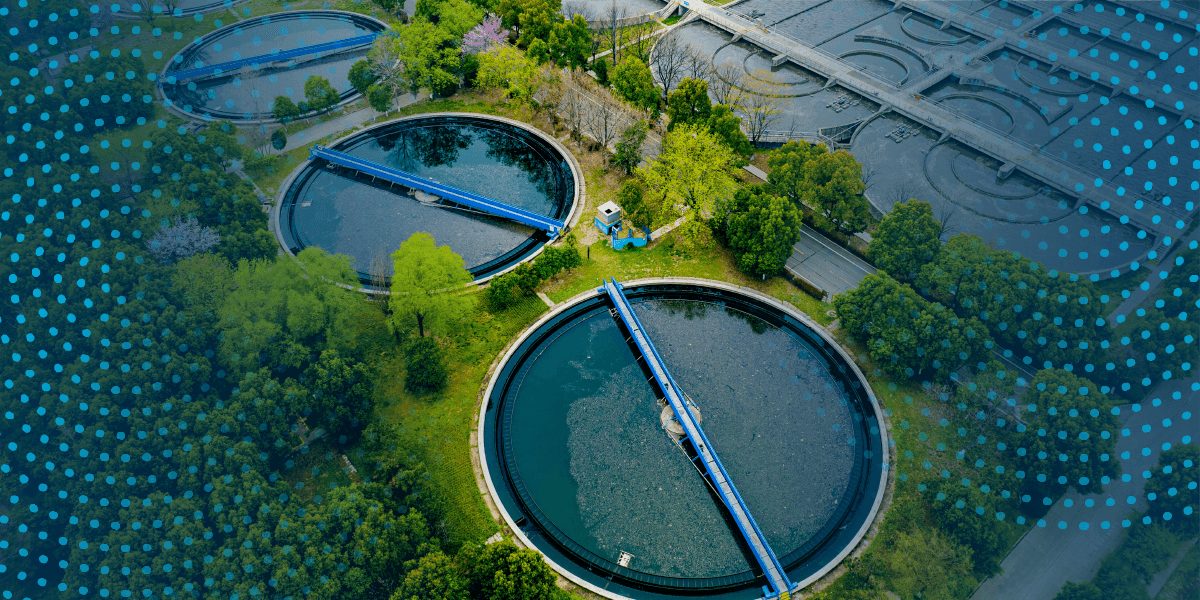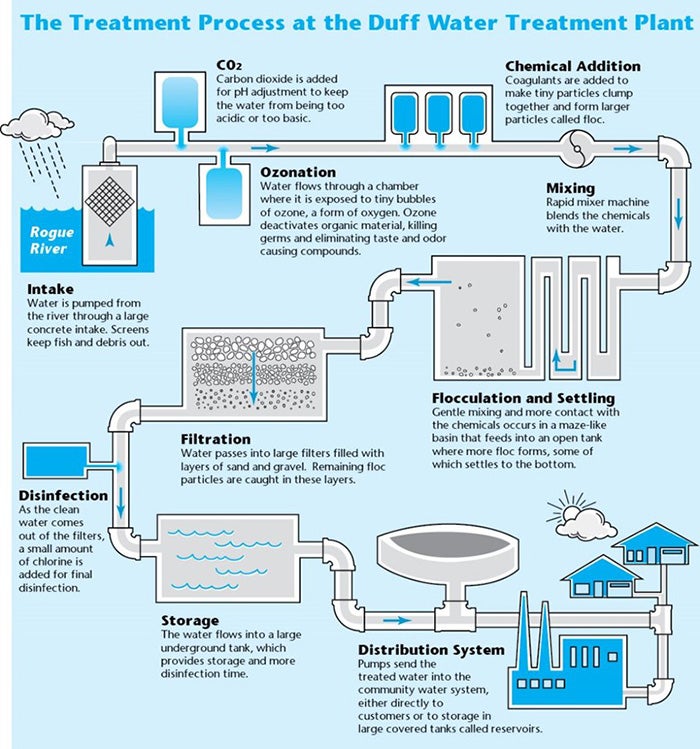Water Technology Startups: Worldwide Shifts and Opportunities
Wiki Article
Exploring Water Technology Startups: Just How They Change Sustainable Solutions
Water Technology startups are arising as vital players in the mission for sustainable remedies to global water issues. These companies utilize cutting-edge modern technologies to enhance water effectiveness and administration. Their contributions address pressing obstacles such as deficiency and contamination. In spite of their capacity, they face numerous obstacles that could influence their success. Comprehending these dynamics loses light on the future of water sustainability and the duty these start-ups might play in shaping it.The Importance of Water Technology in Today's Globe
As worldwide water scarcity increases, the significance of water Technology becomes significantly evident. Water Technology plays a vital role in addressing the obstacles positioned by raising and reducing freshwater sources need. It includes a broad variety of advancements, consisting of sophisticated purification systems, wastewater treatment technologies, and clever irrigation options. These advancements not only boost the performance of water use however additionally promote sustainable techniques throughout various industries, consisting of farming, industry, and metropolitan development.The relevance of water Technology extends beyond source monitoring. It fosters durability versus environment change impacts, such as droughts and floods, by supplying flexible remedies for water preservation and management. Furthermore, it sustains public wellness by ensuring access to secure and tidy alcohol consumption water. As the globe encounters expanding water-related obstacles, the assimilation of innovative water modern technologies is essential for fostering lasting growth and safeguarding water availability for future generations.
Ingenious Solutions From Water Tech Startups
While conventional methods to water management have actually served their function, a new wave of water technology start-ups is reinventing the market with ingenious services (Water Technology Startups). These companies leverage sophisticated modern technologies to attend to pressing water concerns, such as deficiency, contamination, and ineffective circulation. Lots of start-ups make use of man-made intelligence and artificial intelligence to maximize water use and anticipate demand, causing more sustainable techniquesIn addition, a number of firms concentrate on establishing innovative filtering systems that remove toxins and make water secure for usage. Others explore decentralized water treatment technologies, allowing communities to handle their water sources better. Some startups are pioneering wise irrigation options that decrease water waste in farming, advertising ecological preservation.
Case Studies: Successful Water Technology Startups
Various water Technology startups have emerged as leaders in attending to international water obstacles via cutting-edge strategies. One remarkable instance is Xylem, which concentrates on water analytics and clever framework to maximize water usage and decrease waste. Their services have actually been carried out in different towns, demonstrating substantial renovations in water administration performance.An additional successful startup, Absolutely no Mass Water, has actually developed solar-powered hydropanels that draw out water vapor from the air, offering sustainable alcohol consumption water in deserts. Water Technology Startups. This Technology has actually been deployed in several countries, ensuring neighborhoods have access to clean water
AquaVenture Holdings operates a varied portfolio of water-as-a-service remedies, dealing with water shortage through desalination and wastewater therapy. Their projects have actually shown important in areas encountering serious water scarcities, showcasing the capacity of cutting-edge water technologies to develop enduring, positive influences. These case research studies highlight the transformative potential of startups in the water Technology field.
The Function of Smart Technology in Water Management
Smart Technology plays a crucial role in contemporary water monitoring by leveraging IoT applications to optimize source usage. Data analytics improves effectiveness by offering workable understandings, while remote tracking remedies enable real-time oversight of water systems. Together, these technologies transform how water is handled, promoting sustainability and operational efficiency.IoT Applications in Water
As water shortage and monitoring obstacles heighten around the world, the integration of Internet of Things (IoT) applications has become a critical option in maximizing water sources. IoT Technology promotes real-time monitoring and analysis of water supply, making it possible for extra reliable use and monitoring. Sensing units released in various water facilities can track quality, flow rates, and leak, giving important data to stakeholders. This data empowers customers and energies to make educated decisions, reducing waste and improving conservation initiatives. Furthermore, wise irrigation systems utilize IoT to maximize water distribution for agriculture, making sure that crops receive the right quantity of water at the ideal time. Generally, IoT applications are transforming traditional water monitoring methods, promoting sustainability and resilience in water source systems.Data Analytics for Performance
Using data analytics is vital for enhancing performance in water administration. Water Technology startups are progressively utilizing innovative analytics to enhance source allowance and reduce waste. By examining data from numerous sources, these start-ups can identify patterns and patterns that inform much better decision-making. For instance, anticipating analytics can forecast water demand, permitting utilities to readjust supply appropriately, therefore decreasing lacks and excess. Furthermore, real-time information processing allows the prompt discovery of leaks and ineffectiveness within circulation systems, greatly decreasing functional prices. Moreover, data-driven insights equip stakeholders to carry out targeted preservation strategies, fostering sustainable methods. Essentially, integrating information analytics into water management not only improves operations however likewise advertises long-term sustainability in water source usage.Remote Monitoring Solutions
While conventional water administration systems usually struggle with inefficiencies, remote monitoring solutions are changing just how water sources are handled. These ingenious innovations allow real-time data collection browse this site and evaluation, permitting stakeholders to keep an eye on water top quality, flow rates, and use patterns from afar. Making use of sensing units and IoT devices, remote surveillance provides immediate insights that facilitate aggressive decision-making. This change not only enhances functional effectiveness but additionally advertises sustainability by decreasing water waste and optimizing source appropriation. Furthermore, remote monitoring systems can recognize prospective issues before they escalate, thereby lessening the risk of contamination or framework failure. As water Technology startups proceed to create these options, the industry is positioned for significant advancements in sustainable water management techniques.Challenges Encountering Water Technology Startups
Water Technology startups come across considerable difficulties that can hinder their development and success. Trick problems consist of securing sufficient financing, maneuvering via complex regulative settings, and competing in a congested industry. These obstacles need critical planning and advancement to overcome.Funding and Investment Challenges
Although innovation in water Technology holds enormous possibility for addressing worldwide difficulties, start-ups in this field typically encounter substantial financing and investment difficulties. Lots of investors stay careful, viewing the water industry as high-risk because of its complex regulatory landscape and long development timelines. Additionally, start-ups often struggle to show immediate success, which can discourage potential backers. Traditional endeavor resources might overlook water technology, preferring fields with quicker returns, such as technology or durable goods. Securing gives and government funding can be time-consuming and affordable, further complicating monetary stability. Therefore, lots of ingenious water Technology start-ups discover themselves in a ragged edge, needing imaginative funding strategies to browse these financial obstacles and attain their objectivesRegulatory Conformity Issues
Guiding regulative conformity is a considerable challenge for start-ups in the water Technology industry, as they have to grapple with a myriad of neighborhood, national, and worldwide policies. These policies often include water top quality standards, ecological defense laws, and safety protocols, which can differ commonly across territories. Startups might find it tough to browse this complex landscape, especially when scaling procedures or getting in new markets. The expenses connected with conformity can be substantial, diverting resources away from innovation and product advancement. In addition, hold-ups in obtaining required licenses or qualifications can hinder growth and market entry. A durable understanding of regulative frameworks is necessary for these start-ups to ensure sustainable procedures and stay clear of possible lawful effects.Market Competitors Characteristics
As water Technology startups emerge in a competitive landscape, they face various challenges that can hinder their growth and innovation. Established companies often dominate the marketplace, leveraging sources and experience to keep their placements. Start-ups deal with restricted funding, which limits r & d capabilities, making it difficult to complete on Technology and rates. Furthermore, the rapidly evolving nature of water modern technologies needs continuous adaptation, further stressing startup sources. Regulative hurdles can make complex market access, as compliance with ecological requirements is vital yet costly. Drawing in skilled ability in a niche area presents an visit the website additional obstacle, as larger companies may supply more attractive work bundles. Subsequently, these aspects create a complicated setting for water Technology startups intending to do well.
The Future of Water Technology and Sustainability

The future of water Technology will likely concentrate on incorporating expert system and data analytics to enhance water circulation and use patterns. By using real-time data, firms can forecast scarcities and take care of sources a lot more successfully. Moreover, sustainable methods will become a cornerstone of the industry, encouraging circular economic climates where water is reused and treated. Ultimately, the ongoing advancement of water Technology will certainly be crucial in producing resilient infrastructures efficient in fulfilling the obstacles presented by climate change and populace growth while promoting ecological stewardship.
Frequently Asked Concerns
What Are the Secret Metrics for Assessing Water Technology Startups?
Key metrics for evaluating water Technology startups include market possibility, scalability, client acquisition prices, profits growth, modern technology development, regulatory conformity, environmental impact, affordable advantage, and group knowledge, all crucial for determining lasting feasibility directory and success.How Can People Support Water Technology Innovations?
People can support water Technology innovations by buying startups, promoting for policy modifications, participating in area initiatives, sharing expertise about lasting practices, and advertising awareness of water concerns with social media sites and regional occasions.What Are Typical Funding Resources for Water Tech Startups?
Typical financing sources for water tech start-ups include equity capital, federal government gives, crowdfunding platforms, angel financiers, and company collaborations. These financial opportunities aid facilitate technology and development in sustainable water administration modern technologies.
Which Industries Benefit A Lot Of From Water Technology Advancements?
Industries such as agriculture, power, production, and community services profit significantly from water Technology advancements. These technologies improve water efficiency, reduce prices, and promote lasting methods, ultimately adding to environmental preservation and resource management.Exist Any Kind Of Regulative Challenges Certain to Water Innovation?
Yes, water Technology encounters regulative challenges, consisting of compliance with ecological standards, allowing processes, and differing local policies. These intricacies can impede innovation and slow down the execution of new modern technologies in the water management field.Water Technology startups are emerging as important gamers in the pursuit for sustainable options to global water problems. As international water scarcity increases, the importance of water Technology becomes increasingly evident. Others discover decentralized water treatment innovations, enabling areas to manage their water resources much more effectively. One more effective start-up, Absolutely no Mass Water, has actually developed solar-powered hydropanels that extract water vapor from the air, supplying lasting alcohol consumption water in dry areas. Their tasks have actually proven vital in areas dealing with serious water scarcities, showcasing the possibility of cutting-edge water technologies to create long lasting, positive impacts.
Report this wiki page